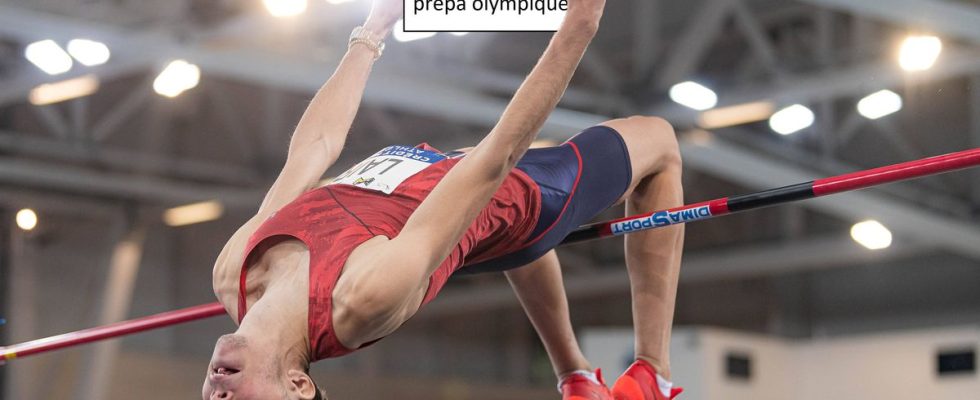Imagine having to climb Everest in small street shoes, with just a sweater on your shoulders. You wouldn’t go very far, just a few meters, before turning around and quietly returning to France with your hands in your pockets, wondering what could have happened. No, climbing the highest peak in the world requires preparation with quality equipment, in addition to intensive training. A bit like the Olympic Games. How do you want to prepare for the meeting of a lifetime, in Paris, if we don’t give you the means?
This is the situation experienced, in France, by several very high-level athletes who, six months before the Games, must find financial resources to best prepare for this event. So, when partners, federations and equipment manufacturers cannot meet the necessary needs, they find themselves obliged to launch online prize pools. “It was really the last option, I had to come to that,” says Dorian Lairi. But it’s always tricky to ask strangers for money. »
A problem of legitimacy
The French high jump champion is unfortunately not the only one to have had to go through this. Even high-sounding names of the French athlete, like Dimitri Bascou (bronze medalist at the 2016 Rio Olympics in the 110m hurdles) or Alexandra Tavernier (4th at the Tokyo Olympics in 2021 in the hammer throw) had to resolve to go through this, in order to best prepare for the Olympic Games. “The question of legitimacy is omnipresent, and even today, because my objective is not to win the Games, it is to participate in them, to qualify, which is already enormous,” assures the heptathlete Elisa Pineau.
To give herself the means to dream, Elisa Pineau put aside her massage-physiotherapy studies and her part-time job for a year. Sounkamba Sylla (400 meters), thanks to his support committee which created the prize pool, reached an agreement with his employer to focus 100% on the Games. Dorian Lairi decided to delegate his small photo and video business, “which allowed him to fill the fridge”, to his best friend. So, to finance the courses, particularly abroad, travel to competitions, accommodation, equipment, food… Creating a prize pool had become essential.
“The budget she was missing compared to what she has today is 20,000 euros,” explains Véronique Pieux, secretary of Laval Agglo Athlé 53, member of the Sounkamba Sylla support committee. This pot is mainly to try to glean private partners, and this was the direction wanted by Sounkamba, rather than individuals. » But, given the current situation, small and medium-sized businesses are in no hurry to come and sponsor an athlete, and are struggling to understand that we can communicate through sport.
“We fend for ourselves”
So, approaching companies takes time and mental energy, to the point of quickly becoming discouraged if you don’t find a buyer. And clubs cannot help their athletes too much. “Today, it is difficult to cover the cost of a season for an athlete of this level, who aims to compete in the Olympics,” says Leo Nocaudie, of the Annecy club. [qui a lancé une cagnotte pour ses athlètes], where Alexandra Tavernier is licensed in particular. We talk about courses, training, equipment… We understood that we had to fend for ourselves. We are taking steps to try to support the athletes, but the root of the problem has to do with the people at the head of this system. »
The French Athletics Federation, which did not respond to our requests, helps its athletes well, in a three-circle system, but these are very selective. Certain regions or departments can also help athletes, such as Ain, which granted an individual scholarship intended for athletes involved in the national selection to participate in the Olympics. Finally, aid can also be received via the National Sports Agency, but it concerns a reduced number of athletes, the most efficient.
And after the Paris Olympics?
All the athletes contacted deplore, in any case, a real gap between the resources allocated, particularly in athletics, and the results demands formulated by the President or the Minister of Sports, who are aiming for a top 5 medal finish at the Olympic Games. Paris (with 16 or 17 gold medals). And they all make a comparison with the London Games, which allowed British athletes to reach a milestone.
In London in 2012, the United Kingdom won a lot of medals [65 médailles dont 29 en or]whereas four years before, they had much less [30 médailles dont 9 en or], develops Elisa Pineau. The UK put up a huge amount of money, but not just a year before their Games. When I see my English competitors, they have access to incredible facilities, means of recovery, doctors… Their whole life as an athlete is much more obvious, they are focused on training, and that is a comfort that I ‘would have liked to have. »
“The policies in place make me laugh,” concludes Dorian Lairi. The first thing they do is put the blame on the athletes, while all the athletes are at 200%, everyone wants to succeed, but everything is not done for us to succeed. With hindsight, seeing how few resources were invested in athletes when there was a deadline like the Olympics at home, I wonder how things will go afterwards. » Spoiler: not very good.

